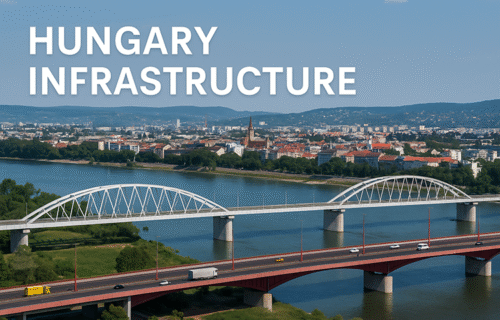As Hungary embarks on one of its largest waves of infrastructure spending in recent years, industry observers and governance experts are voicing concerns about the programme’s transparency, efficiency, and long-term benefits.
The government has announced plans to revive hundreds of projects in 2025, focusing on highways, rail links, and digital networks. Officials say the investments will drive competitiveness and regional growth. But professionals across the construction, finance, and policy sectors warn that weak oversight and opaque procurement processes continue to undermine confidence in how public funds are used.
Analysts note that infrastructure contracts in Hungary are frequently awarded without sufficient public scrutiny, raising questions about competition and accountability. Critics argue that a lack of disclosure over costs and contractor selection has become a recurring feature of large public projects, increasing the risk of inefficiency and favoritism.
Some of the skepticism centres on high-profile ventures such as the Budapest–Belgrade railway, which has been described as strategically significant but economically uncertain. Experts question whether the investment will generate returns proportional to its cost, especially as freight and passenger volumes along the route remain limited.
Economists also point to an imbalance in regional development. While major highways and cross-border routes receive substantial funding, smaller communities often see little improvement in local infrastructure. This uneven distribution, they argue, deepens existing economic divides between central Hungary and outlying regions.
International watchdogs have also highlighted concerns about corruption and the concentration of political influence in public procurement. Reports suggest that a small number of contractors dominate state-funded construction, which can discourage competition and inflate project prices.
Beyond the financial risks, professionals stress that long-term infrastructure success depends on stronger institutional capacity and independent oversight. Without consistent auditing, project evaluation, and enforcement of fair bidding standards, new investments could repeat past mistakes of cost overruns and delays.
At the same time, environmental and technological priorities remain secondary in many projects. Although the government has pledged to integrate sustainability and digital innovation into transport and energy infrastructure, experts say practical implementation often lags behind political declarations.
Despite the criticism, few dispute the need for investment. Hungary’s transport networks and energy systems require significant modernization after years of underfunding. What divides professionals is not the ambition of the programme, but whether it can be delivered with transparency, balanced development, and value for money.
As one urban planner put it privately: “Hungary doesn’t need fewer roads or railways—it needs better governance of how they are built.”
